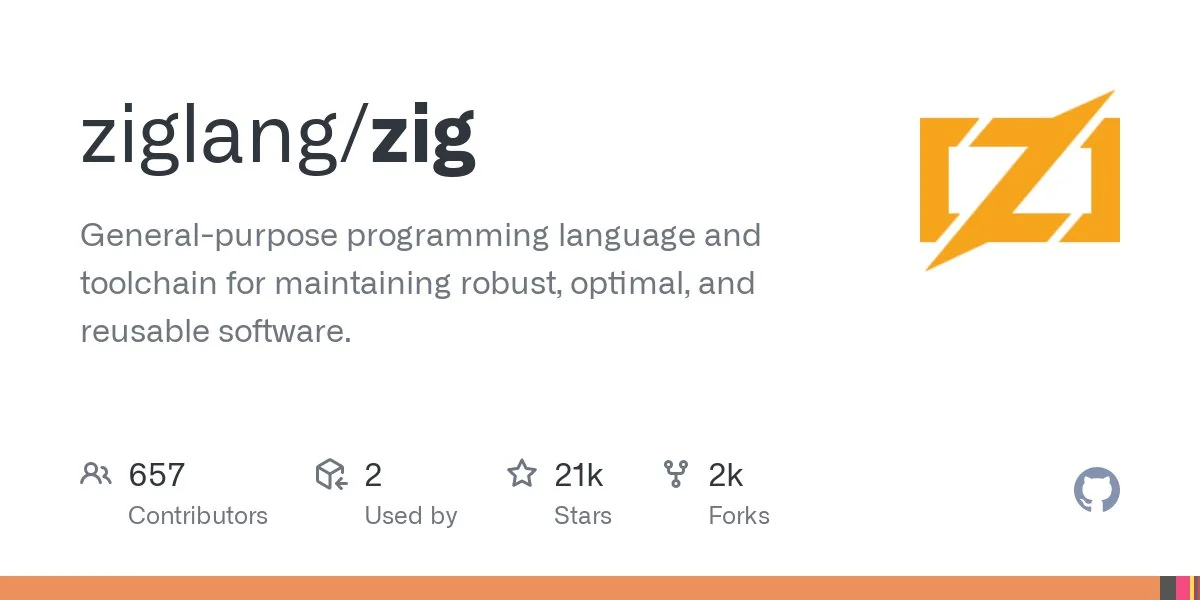Greetings, tech enthusiasts! Today, let’s dive into the intricacies of Zig, a programming language that has been creating ripples since its inception in 2016, thanks to Andrew Kelly. Positioned as a contemporary alternative to C, Zig has gained attention for its distinctive features.

Greetings, tech enthusiasts! Today, let’s dive into the intricacies of Zig, a programming language that has been creating ripples since its inception in 2016, thanks to Andrew Kelly. Positioned as a contemporary alternative to C, Zig has gained attention for its distinctive features.
Intro to the Zig Programming Language • Andrew Kelley • GOTO 2022
Much like its predecessor, C, Zig prioritizes explicit and portable code. However, it takes a unique stance on memory management. Unlike some languages that make bold promises about memory safety, Zig opts for transparency. It eschews concealed memory allocations, giving programmers explicit control. Notably, the standard library boasts allocators facilitating consistent memory management across diverse architectures.
This is how a hello world program written in zig will look like:
const std = @import("std");
pub fn main() void {
// Print "Hello, World!" to the console
std.debug.print("Hello, World!\n", .{});
}
If you have any experience with C language then you might feel the zig code looks a lot familiar, it was done intentionally by the zig creators in order to make the language easier to understand for C developers.
To run this code, you would typically save it in a file with a .zig extension, for example, hello.zig, and then use the Zig compiler to build and run it:
zig build-exe hello.zig
./hello
This will compile the Zig source code into an executable and run it, displaying “Hello, World!” in the console.
Zig champions code clarity, avoiding hidden control flows, operator overloading, and exceptions. Error handling is paramount, with functions explicitly addressing potential pitfalls. The introduction of the ‘comp-time’ keyword facilitates seamless compile-time code execution, eliminating the need for preprocessors or macros. Zig seamlessly integrates into existing C or C++ codebases and supports cross-compilation with LLVM.
How to declare variables in Zig:
const std = @import("std");
pub fn main() void {
// Mutable variable
var myNumber: i32 = 42;
std.debug.print("Mutable Variable: {}\n", .{myNumber});
// Immutable variable
const myConstant: i32 = 99;
std.debug.print("Immutable Variable: {}\n", .{myConstant});
}
In this example:
Variable declaration in Zig is straightforward, accommodating both mutable and immutable variants. Structs offer a means of grouping variables, enhancing code organization. Zig introduces flexibility in memory management, allowing dynamic allocation to slices in the heap. This feature empowers developers to choose memory management strategies that align with their objectives.
Zig underscores the importance of explicit error handling through the ’try’ keyword, enhancing code reliability. The ‘defer’ keyword aids in automatic deallocation, mitigating the risk of memory leaks. Zig features a built-in testing framework, enabling developers to assess code reliability beyond the confines of the main program.
In conclusion, Zig offers a comprehensive testing framework for code reliability verification. The process of building executables is streamlined with the ‘zig build’ command, allowing developers to optimize for speed, size, or safety.
In a concise timeframe, we’ve traversed the landscape of Zig, uncovering its unique attributes—from explicit memory management to robust error handling. Zig presents an appealing option for system programming, embodying performance and reliability. Whether you’re a seasoned developer or a newcomer, Zig introduces a fresh perspective to the diverse array of programming languages.